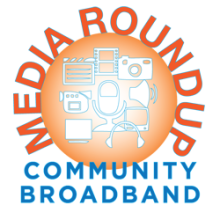
Fast, affordable Internet access for all.

Communities all over the country have nearby examples of successful broadband networks at their fingertips, and this week more communities are moving ahead with plans to take back their authority to build them.
Rockford, Illinois city leaders announced a proposal that would tap in to 900 miles of existing fiber optic cable. Kelsie Passolt with NBC13 in Rockford reported on the city’s steps to connect its community.
Ansel Herz with The Stranger in Seattle expresses frustration with the city’s pace of progress. He interviewed a former broadband task force member, Bill Covington for context surrounding the city’s decision to move forward on another study.
"I want to see if the Murray administration will say, 'Let's put the money on the table, and take the heat, and we will follow the Chattanooga or Tacoma Click! model. Chattanooga's model, with the city's public utility taking the lead and overcoming lawsuits from the likes of Comcast, has been a rousing success.”
Put a pin in Berkshire County in Western Massachusetts. The state’s broadband institute is discussing strategies for high speed Internet. Tony Dobrowolski with the Berkshire Eagle reports that “If officials are interested, Holahan said the MBI is willing to help town governments with the cost of connecting residents and businesses.”
And your nugget of joy for this week is a gem from Opelika Power in Opelika, Alabama. Their clever advertisement makes us smile, we hope you enjoy as well!
The New York Times’ Edward Wyatt dug deep to reveal that even sweet potatoes have a connection to community broadband. His story highlights what happens when state laws get in the way of Internet competition.
“…A three-year-old state law prohibits the city of Wilson’s utility from expanding its broadband network outside its home territory.
“The technology is right there across the county line,” Mr. Bissette said on a recent afternoon, after plowing up a field of sweet potatoes for harvest. “If we could get the service, we could make sure the temperature is right, that air is circulating. It would make life a whole lot simpler.”
It’s not new that there’s big money in telecommunications legislation, but just how much is going into elected official's coffers? Sarah Zhang with Gizmodo breaks down the numbers, collecting the campaign contributions to politicians from Comcast, Time Warner, Verizon, AT&T, and their trade group the National Cable and Telecommunications Association. See where your legislator ranks on the list.
Net Neutrality
President Obama's call for reclassification of Internet access caused a stir this week. Fortune's Peter Sucio explained what that would mean for consumers.
“Comcast and Verizon want to scare the public and Congress by calling Title II ‘regulation of the Internet,’” says Evan Greer, campaign director of the advocacy group Fight for the Future. “Title II is about preventing a select few companies from regulating what people can and can see and do on the Internet.”
But Brian Heaton wrote in GovTech this week that it's definitely much more complex than President Obama's public statement led many to believe.
Christopher Mitchell, director of the Telecommunications as Commons Initiative at the Institute for Local Self-Reliance, and an advocate for improved Internet access, wasn’t sure how Obama’s words will impact the commission’s decision. But he felt the president should be taking a stronger lead on the issue.
“I think the president is trying to provide cover for the FCC to take the necessary steps to protect the open Internet despite incredibly strong opposition from the cable/telephone companies and their proxies,” Mitchell said.
Mitchell also provided insight on a number of other news reports on the issue this week. OPB's "Think Out Loud", MPR's "Daily Circuit", and KCRW's "To the Point" were among them.
Rachel Swan with San Francisco Weekly wrote that her city might not be waiting for the FCC to decide what happens to the Internet. It’s a message we hope other communities hear loud and clear:
“There's a glimmering possibility that the agency might not rule in favor of an open Internet. And even if it does side with Obama, consumers are still left with the fundamental problem of a small group of companies controlling a critical resource.
"We have to realize that net neutrality is not a silver bullet, when it comes to giving consumers freedom," Electronic Frontier Foundation activist April Glaser says.
Iowa
Iowa receives $26.2 million in emergency education relief to expand broadband access, Discover Muscatine
Minnesota
Colorado
Little-known Internet network plans Western Colorado expansion to link students, nonprofits to supercomputers by Tamara Chuang, Colorado Sun
Louisiana
California
Partnerships can close the digital divide by Apoorva Pasricha & Kevin Frazier, GovTech
Colorado
Arizona
Mohave Electric Cooperative moves forward to build fiber optic network in partnership with TWN Communications, Cision PR Newswire
Arkansas
